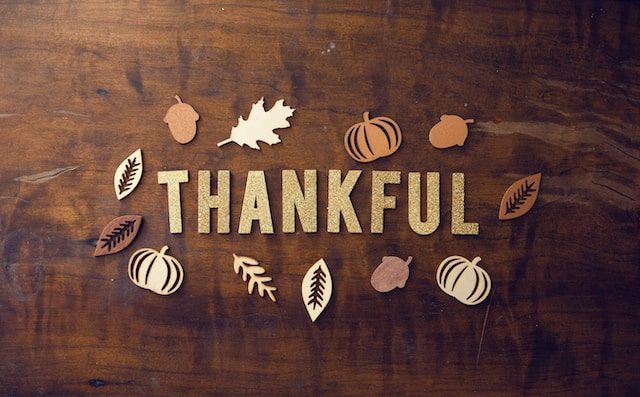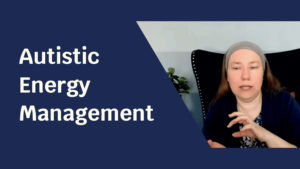I refused to say “I’m grateful”
For those of us in the United States, we’re approaching Thanksgiving, a season of the year in which lots of people ask us what we’re grateful for. This question came up every year in my high school German language class, as a language exercise, and I flat out refused to answer because I reasoned that it would imply being grateful to someone or something.
For generalized gratitudes like, “I’m grateful for my life,” or “I’m grateful for my family,” where I couldn’t identify a specific giver, the common explanation seemed to be that you should be grateful to God, some sort of higher power, or spiritual essence, and I struggled for a long time with believing anything like that exists.
As a teenager, I considered myself agnostic only because I was too skeptical of my own skepticism to take a hard line on the stance that there was no such being. Long story way, way abridged. I have changed my views on that in a progression of ways over the years, as I’ve seen more and more evidence that there is some sort of connection between all things.
My point at the moment isn’t to explore my spiritual or religious beliefs, but to explore the idea of gratitude, because that’s also evolved.
For one thing, I’m not sure that you have to be grateful to someone in every instance. In the kinds of situations in which someone does something particular for you, or gives you something, you can be grateful to that person, but for the kind of gratitudes like, “I’m grateful to be alive” or, “I’m grateful for my family” (chosen or biological), I respect that many people do feel gratitude for some version of God, yet I don’t think that’s necessary.
Thanks as acknowledgement
I think an expression of gratitude could also be something akin to saying, “I appreciate that this person or thing is a part of my life, that my life is richer because of them, and I would miss their presence if they weren’t here.” It can be as straightforward as that.
“I appreciate that this person or thing is a part of my life, that my life is richer because of them, and I would miss their presence if they weren’t here.”
In this form, it is an acknowledgement that this person, gift, or act enriches your life, or helps you out, or eases a burden, or allows you opportunities to do something else instead of doing the particular task that they did.
I’ve found that acknowledging that to myself includes the benefit of bringing to the forefront the interconnectedness of my life and experiences with those around me. And when I acknowledge it to the other (person, animal, plant, nature, business, God, etc.), it strengthens the bonds between us by bringing that connection into the open.
When that expression is sincere, and the other person is able to take that in, I’ve noticed that they often feel good that I’ve acknowledged their role in my life, and that has strengthened the bonds between us.
Being intentional about this is not the same thing as manipulation, another fear that I had. It’s simply an observation of a fairly reliable pattern.
When thanks get diluted
Growing up, I was taught to say thank you to everyone for pretty much anything, to the point that I was saying thank you a lot and it didn’t feel like it meant much anymore. Yet when I genuinely was grateful to someone, I struggled to say thank you, because it felt like there wasn’t any difference between that and the socially appropriate, trained, thank-you-response that had been drilled into me as a politeness marker.
In some strange twist in my mind, when I was genuinely grateful, I had a harder time expressing that than when I was simply being polite, because it didn’t feel like there was enough distinction between one “thank you” and another “thank you,” and I was afraid that people would interpret the real one as phony.
So when I was genuinely grateful for something, people often didn’t see that because I struggled to say so, and my facial affect and body language often didn’t express it either. Or, I would say it so over the top, so many times, that it looked more phony than when I was just being polite.
On the other hand, I’ve talked with people who have struggled saying thank you to anyone for pretty much anything, especially in familial roles where there are expectations of duties and care being exchanged. If it’s expected, a role being fulfilled, why should a thank you be needed?
I think both of those reactions are extremes that hinder healthy relationships. When we say thank you so much that it looses meaning, or never, the people that whose lives are interwoven with ours don’t have access to knowing what the role they play in our life means to us.
people that whose lives are interwoven with ours don’t have access to knowing what the role they play in our life means to us.
Growing healthy relationships
Saying “thank you” doesn’t have to be obsequious, insincere, or self-deprecating. In fact, none of those will work to create healthy relationships.
It can be as simple as, “thank you, you did this particular thing for me, and this is how it helped me.” Or, “you did this thing for me, and this is how it helped me, I appreciate that.”
What I’ve come to understand is that this exchange of caring and acknowledgement is part of how healthy, mutually caring relationships grow, are maintained, and are strengthened, and that takes a lot of the weirdness out of it for me.
Likewise, when others fill me in on the benefits that I provide in their lives, even with things that are routine, expected, or normal, and when I can tell that acknowledgement is genuine, it helps to heal my old wounds and helps me to build trust in safe people.
Why helping others builds bonds
It’s counterintuitive, but it’s often been remarked that we tend to feel closer to people whom we do things for, not people who do things for us.
This used to puzzle me, but I think it works this way because as you help people, you want that help to be meaningful, but the brain doesn’t compartmentalize just the thing you did for them. If you want your help to turn out well, it gives you a reason to want to see them do well. It’s like you’re investing in their future well-being just a little bit.
When that’s mutual—you’re doing a thing for them and they’re doing a thing for you—it strengthens the bonds that we have with them and builds a mutually caring relationship.
So you can say that I’ve come 180 degrees from my original stance on gratitude, when I sat in my high school German class and tried to explain in beginners German that I would not write what I was grateful for because I had a philosophical disagreement with the basis of the question. Never mind that the point of the exercise was to practice language skills. Which happened in a roundabout way, trying to explain this concept. 😉
Now, many years later, I understand the question much better, as well as why it matters.




